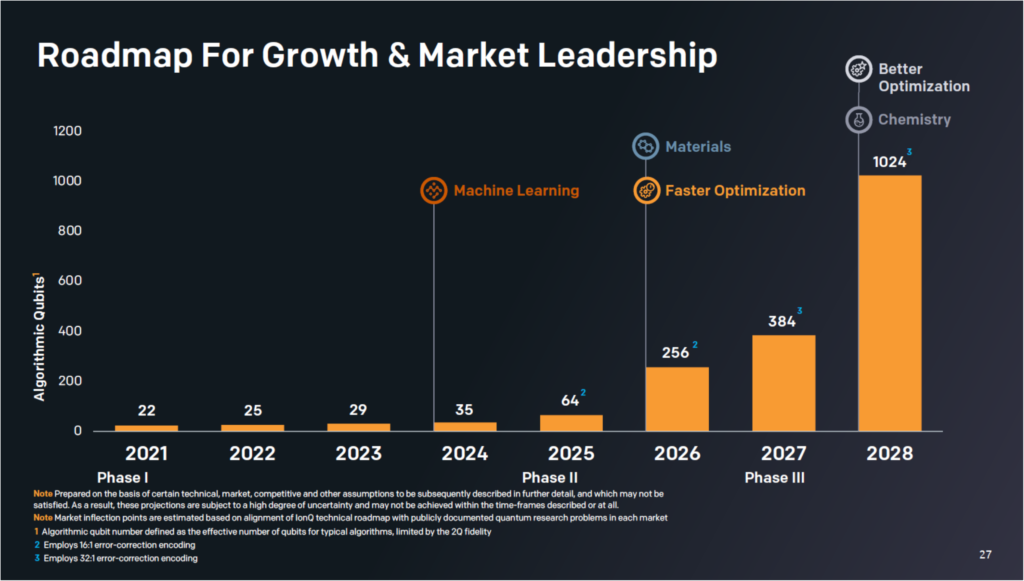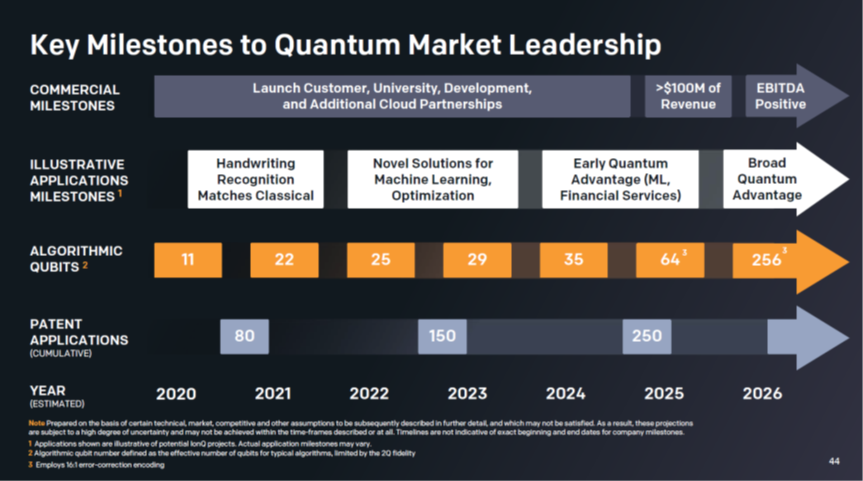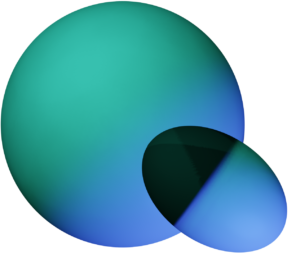IonQ announces $ 650 million merger with dMY Technology Group Inc. III,
This big announcement comes only a few months after IonQ released its 32 qubit system, claiming to be the worlds most powerful quantum computer thanks to its high fidelity atomic qubits with all-to-all gate operations.
Although IonQ is no stranger to strategic partnerships, being the only quantum systems available through both Microsoft Azure and Amazon Braket quantum clouds, this merger would be an unprecedented step for the company. The merger transaction is expected to result in approximately $ 650 million in gross proceeds, including over $ 350 million worth of committed private investment from a range of sources as well as $ 300 million directly from the special purpose acquisition company dMY III. This makes for a combined company value of about $ 2 billion.
“This transaction advances IonQ’s mission, to solve critical problems that impact nearly every aspect of society,” said Peter Chapman, CEO & President of IonQ. “With our key strategic partners, such as Breakthrough Energy Ventures, Hyundai Motor Company and Kia Corporation, we look forward to leveraging the power of quantum computing in the fight against climate change and to solve vexing problems from materials design to logistics that impact the transportation industry.”
So what makes the IonQ system so intersting from a techological (and investment) point of view?
Well a few reasons actually; trapped ion systems have some of the lowest reported error rates of the currently available platforms. They also offer a high level of connectivity, a serious advantage over solid state systems such as the superconducting circuits. These are both significant barriers that prevent or at least slow down quantum computing adoption and mainstream usage. IonQ’s focus on tackling such obstacles definitely place them in the running for the first universal quantum computer.
Beyond this, IonQ have a clear roadmap to scale up and adapt their technology. Over the next few years IonQ will be improving the quality of gate operations, and hence the algorithmic qubit number (i.e. the number of perfect/logical qubits that can be used to run a quantum program/circuit). Their predications over the few years include milestones such as a modular quantum computer to be networked with a datacenter by 2023, broad quantum advantage by 2025 and a quantum system composed of a staggering 1024 algorithmic qubits (with 32:1 error encoding) by 2028.


As shown in their investors presentation, IonQ’s strategy is R&D intensive, with a number of key technological issues still to be ironed out. Although this leads to large overheads and operating costs, quantum computing is gaining traction and already offering real uses case in business, ensuring an ever increasing demand for accessible systems. IonQ is expecting to capitalize on early adopters thanks to their advanced and mature technology platforms. It’s anticipated that near term large contracts will be possible thanks to access through the cloud (and providers such as Amazon and Microsoft) despite these overheads.
Through cloud based access its expected that each IonQ could generate a system life time value of approximately $120m each, with the potential to secure over $ 60 billion worth of the quantum computing market by 2030, as mentioed by Niccolo de Masi, CEO of dMY III:
“IonQ’s quantum computers are uniquely positioned to capture a market opportunity of approximately $65 billion by 2030. Quantum computers will create value across thousands of new applications, and IonQ is poised to be the first company able to fully exploit this massive opportunity,”
As we approach the quantum revolution, it is obvious that strategic partnerships will be necessary to help propel players in the industry. It’s a good bet that through this merger IonQ has secured the resources and capital to achieve true commercialization of their quantum computers giving them a definite advantage over competitors.
